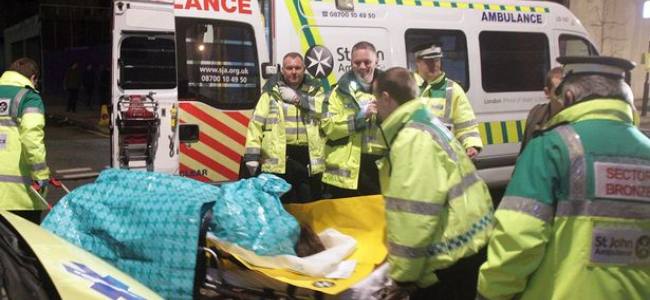
NHS review: transforming urgent and emergency care services in England
NHS England published an update on the Urgent and Emergency Care Review, which builds on NHS England’s future vision for urgent and emergency care in Transforming urgent and emergency care services in England.
This report can be downloaded from NHS England.
The “College of Paramedics” association would like to draw the readers attention to the following statment within the document;
“21. In our End of Phase 1 Report we identified that “By extending paramedic training and skills, and supporting them with GPs and specialists, we will develop our 999 ambulances into mobile urgent treatment services capable of dealing with more people at scene, and avoiding unnecessary journeys to hospital.” Accordingly, we have been working with Health Education England and other stakeholders on supporting work they are leading which will reform the education and training of paramedics. We have also, with the help of our Delivery Group, developed drafts of potential guidance which set out a new specification for how ambulance services could and should be delivered in the future to achieve important elements of our vision. Again, we are continuing to develop this draft guidance and when this process is complete we will release it to the service for use in development of local planning.”
Here below you could find the introduction at this new document from Professor Keith Willett FRCS, Director for Acute Episodes of Care, NHS England:
Last November Sir Bruce Keogh and I presented NHS England’s future vision for urgent and emergency care in ‘Transforming urgent and emergency care services in England: Urgent and Emergency Care Review End of Phase 1 Report’.
As we had hoped, our report generated considerable interest (and positive reaction) from the general public, NHS staff, patients, politicians and the media. We sought this reaction because the subject matter of our End of Phase 1 Report was so important.
I believe that what we published was an honest appraisal of the stresses that the current system faces. We described an urgent and emergency care system that was stretched and fragmented, but importantly we also put forward our case for change. In our End of Phase 1 Report we undertook to update on progress with our Review, and this document delivers against that commitment.
In my role as Director for Acute Episodes of Care for NHS England I regularly travel up and down the country meeting patients and the people who run and manage our health and social care services. From the conversations I have had I know that there is great consensus about the problems with the current urgent and emergency care system, and throughout this Review we have heard many ideas about ‘what’ needs to change. But crucially I believe we are now close to achieving the same degree of consensus on ‘how’ this change might be practically delivered – which I consider to be a real breakthrough.
I hope you find this update useful in terms of describing how we are working with the Delivery Group of patients, partners and stakeholders which has been established to help deliver the vision we set out last November. Further updates will follow as the Review progresses.
Due to the hard work and dedication of NHS staff the urgent and emergency care system performed better than expected last winter. But we must not be fooled into thinking change isn’t necessary. The pressures we highlighted last November still exist, and the challenges that the health and social care system faces in delivering urgent and emergency care remain.
We must continue to keep up momentum to deliver the system transformation that is needed.


